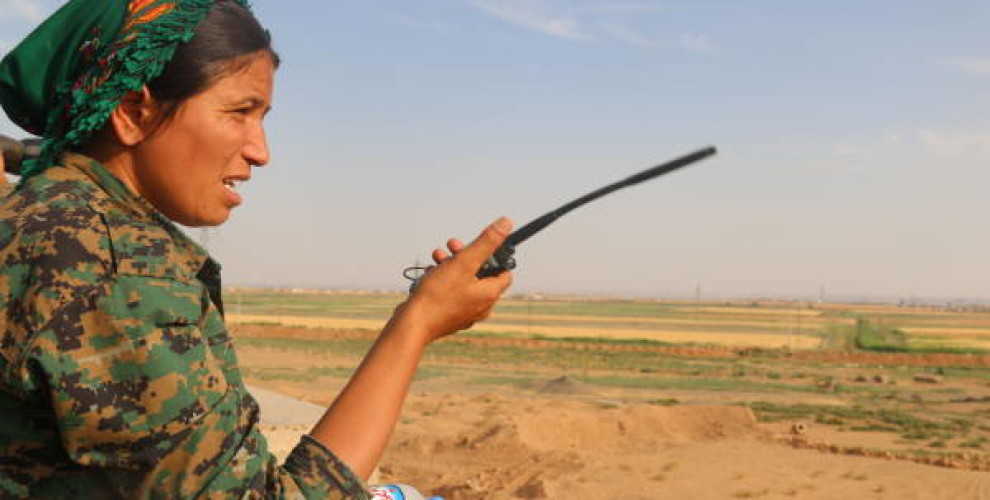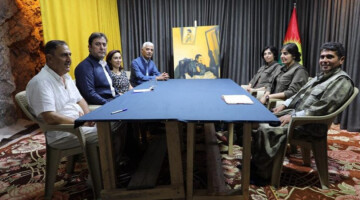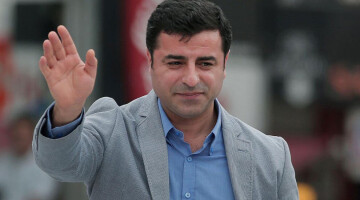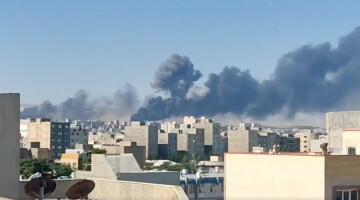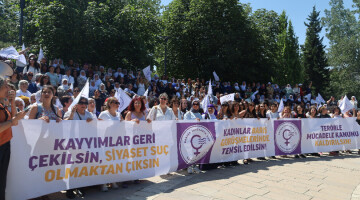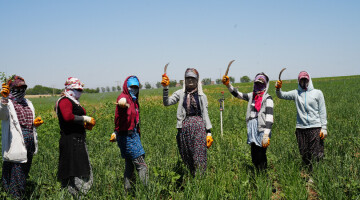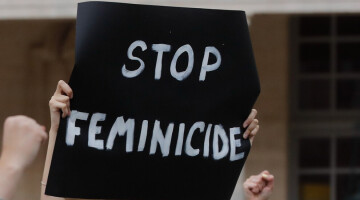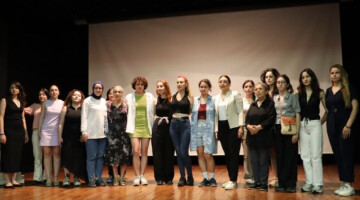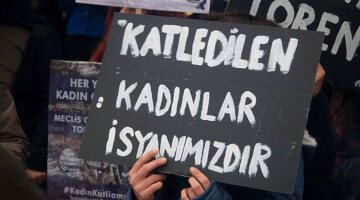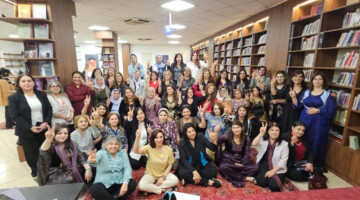One of the commanders for YPJ and SDF in the operation for Raqqa's liberation, Clara Reqa, spoke to ANF about her embattled city of birth, about the life in the city before ISIS, and the role of women in its liberation.
You were born and grew up in Raqqa. Can you tell us a bit about how Raqqa was before the war broke out?
Raqqa is a strategically important city on the banks of Euphrates River. Its dams and the related economic opportunities and development in agricultural sector as well as industry led many people to move to this city. Due to economic reasons, my family had moved very long ago to Raqqa where I was born, spent my childhood, and visited the school. We lived there until the process called 'Arab spring' started and the ensuing war forced my family - as Kurds - to flee Raqqa for safety reasons and to settle in a village of Kobanê. The city is mostly inhabited by Arabs, but Kurds, Turkmen and Syriac people have also their communities there. So, in other words, the population there is a mosaic of peoples. And there are also clear traces of Saladin Ayyub in Raqqa, where caliphs have lived and ruled on their sphere of influence. The city also served as a center in the period of Harun al-Rashid. This historical background of the city made ISIS choose to declare it as their capital and regarded it suitable to propagate their mentality. On the other hand, the operation for Raqqa's liberation which we are leading here is highly deemed by the world community, which never believed that the SDF forces could approach the city, let alone advance into it. This, of course, is only made possible through our immense commitment and big sacrifices, which still pave the way for our advance into many neighbourhoods and strategical places of Raqqa. Especially the participation and leading role which women play in this battle is something which inhere a very special meaning amid the extraordinary difficulties.
What kind of special meaning does it have? Can you explain it further?
After ISIS turned Raqqa into a center for women trafficking, women have been subjected to most ghastly torture methods which exceeded all limits. They were killed on the streets, sold at the marketplace, subjected to torture and locked in houses. The liberation of Raqqa is led and realized by women themselves today. Already many of our great female companions who all were guided by their awareness into these battles, fought here and fell martyrs, because Raqqa is the field where revenge can be taken for all women. It is especially us, who as fellow women feel and understand from our innermost senses the pain of those victims that all bear heart wrenching stories about the experienced horror. The urge for revenge grows even more when you see it with your own eyes.
Without any doubt, the liberation of the place where I was born and grew up has for me some special importance, but I don't refer it personally. We have started our battle with the motto "Each freed woman is a liberated country", because the number one privilege of us the YPJ is the leading mission for the security and identity of women in the Middle East and the whole world
There are also Arab women who joined the fight against ISIS. Can you tell us of the influence the YPJ has on Arab women?
There are some Arab women who have shown incredible willpower to resist ISIS in Raqqa, like Henna whose four children were killed in front of her eyes but who still didn't bow her head to ISIS and defended her will adamantly. She was a woman and a mother, but she became a symbol for the struggle for your homeland and dignity.
ISIS and their mentality have already been beaten by the resistance of the likes of Hanna, that is beyond question, but her stance is even more the proof of what woman become when they attain an independent awareness. Here we talk about the role which the Women's Defense Units - YPJ - take on in Rojava and Syria, the YPJ which gave strength, morale and hope to all women in Syria and the whole Middle East.
Why do you call the operation for Raqqa's liberation a campaign of women, and what expectations do you have of Raqqa?
We are not after territorial victory alone, because we aim to create a democratic, equal and libertarian society in the wake of this operation. This campaign is, at least, a beginning to this end. Every Arab woman that sees this want to join the fight. Given their own suffering of years under the tyranny, they were actually surprised when initially seeing female fighters fighting and resisting. This is because of the fact that the society had their will stripped of, they are like dead people remaining standing. We need to keep working on it to bring the society back to life with a democratic, social, moral and political awareness befitting the essence of the society. We the YPJ and SDF are giving a struggle for this.
It is clear that the Raqqa operation differs from the previous ones, as women are leading the coordination and spirit of the battle. How would you as one of the coordination members read the prospective influences on the organisation of women as an army?
We as the YPJ are indeed a very experienced force which evolved through big sacrifices and many heroic and self-sacrificial actions. All the hardships which we went through left experiences behind themselves and formed the brain of war in tactical aspect. Tendencies of going into details, thinking of the people and protecting their values came further to the fore in the person of women. Women met their historical mission, and revealed a great will and fighting capability with this awareness. The YPJ has taken an active part in all battles and military campaigns in Rojava, and as a matter of fact has proved competence in battles and war coordination. It is not a secret that you catch on the nature and essence of warfare when you are as a commander within the storm of battles and witness all with your own eyes. You attain a feeling for the happenings in war and can become very experienced in tactics and strategies, when you open yourself to it.
The YPJ Command had stated during the initial phases of the Raqqa operation, that the YPJ will also take on a role as a control force. Can you lay it out for us?
We have many different forces within the SDF, and war-situations are not to be compared with anything. It is nearly impossible to foresee what could happen because sudden changes always keep occurring. And just think of the atmosphere when bullets are whizzing past your ears, the sound of explosions, the sight of corpses and many such examples... You try to understand what actually happens when a comrade loses his or her life at your side. These are very difficult and intense conditions which the YPJ handles by creating a balance directly at the front lines as a control force, by making use of their philosophy and strength for the protection of the women's values. I can mention many examples when we were in the same emplacement fighting alongside our Arab comrades. Sometimes they wanted to leave their positions but after they saw that the women didn't abandon their positions and fought until they fell martyrs, they were shaken and extremely affected. This of course raised their morale and courage immensely to keep on fighting.
There is nothing more important for us in war situations than to protect moral and humane values and the lives of human. Maybe even more attentively than our male fighters. There are therefore YPJ fighters present in all fighting units, each of whom also serves as part of the control force in that unit, acting totally according to the named principles.

